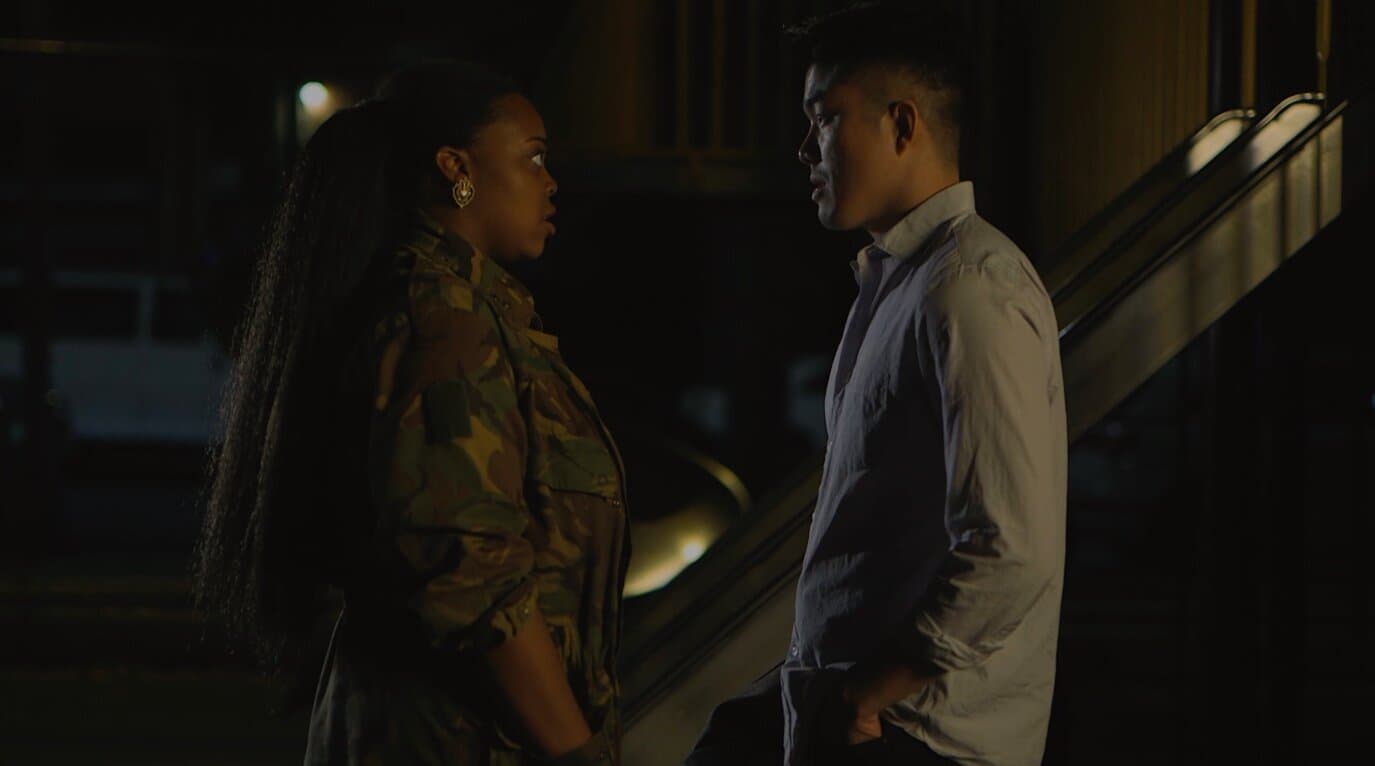Advertisement
New Film Series 'Shared Stories' Centers The BIPOC Experience

Three steadfast leaders of Boston independent film festivals have joined forces to create a new freestanding film series that finds commonalities across the human experience.
Between them, Susan Chinsen of the Boston Asian American Film Festival (BAAFF), Sabrina Avilés of the Boston Latino International Film Festival (BLIFF) and Lisa Simmons of the Roxbury International Film Festival (RoxFilm) have accrued more than 40 years of experience helming organizations that celebrate independent film and filmmakers, with Chinsen and Simmons also credited as founders. Each have developed a loyal following of audience members who return year after year.
Over that time, the three programmers have frequently shared film suggestions or helped publicize each other’s festivals. But then they saw an opportunity — and a need — for something more deliberate. “We want our audiences to be cross sectional,” says Simmons. “I want the Asian American community to come to RoxFilm and vice versa with Sabrina [Avilés].”
Chinsen adds a social justice framework to their convening as well. She sees teaming up with Simmons and Avilés as an extension of the Black Lives Matter movement and film’s potential to tell universally human stories creating a common bond. “As communities of color we need to work together to fight a dominant culture steeped in hetero white normative practice,” she says. “This is us trying to take the reins and self-determining ourselves.”
To do that, they decided to launch a cross-pollinating, collaborative film series called “Shared Stories.” They hosted one event last spring only to necessarily pause for COVID-19. (Last month’s “Down A Dark Stairwell” served as a soft launch.) While also running their respective festivals in 2021 (RoxFilm in June, BLIFF in September, BAAFF in October), they return to ArtsEmerson this spring with monthly “Shared Stories” from February through June. Each program will feature films that center the BIPOC experience and discussions that connect related themes to Boston.
This month, the group chose the short film collection “Our Right to Gaze: Black Film Identities” as the spotlight to stream Feb. 24-28 along with two nonfiction features, “Alternative Facts: The Lies of Executive Order 9066,” about Japanese American incarceration during WWII, and the work-in-progress “Savages, Servants and Specialty Acts,” about how white dominated mass media has shaped Black identity. Also showing are curated shorts from each of the three past individual festivals.
The six shorts within “Our Right to Gaze” range in subject matter from a goofy send-up of how a pre-teen auntie helps her fledgling 30-something nephew get unstuck (“Auntie Zariyah”) to a haunting sci-fi take on how one woman’s special powers prevent an unprovoked police shooting (“The Black Banshee”). “The Pandemic Chronicles” are just that — brief scenes from life one would never have fathomed before the pandemic, like dubious hook-ups while wearing N95 masks. An Oprah-like icon disillusions a fan in “A Hollywood Party.”
Opening with “Our Right to Gaze” makes sense to Simmons because while focusing on Black identity, the storylines also include multiracial relationships, for example. “These are human stories not just Black stories or Asian stories or Latino stories,” she says. That’s a concept she and the other programmers hope comes through with each “Shared Stories” selection. Many films include a recorded discussion, with this installment featuring a conversation between Simmons, Avilés, “Our Right to Gaze” curator Curtis Ceasar John and “A Hollywood Party” filmmaker Toryn Seabrooks.
Avilés points to another short this month, “Activized,” as one that showcases how all different types of people unite, in this case to become activists in the age of Trump. “They talk about gun violence, voting rights, and immigration,” she says. The short screened virtually as part of BLIFF 2020 and included what Avilés calls a “robust Q&A” with Boston filmmaker Eric Stange, also available to stream. “Shared Stories” gives audiences beyond BLIFF another chance, and reason, to tune in.
In addition to the overt goal of drawing new audiences together, “Shared Stories” has unexpectedly deepened the connection between the three festival leaders. “The more I get to know them, the more I really welcome them — not only as colleagues but as friends,” says Avilés. “We share stories, our sadness… We laugh so much that it’s hard to get work done.”
“The three of us are all kind of loving and forgiving of one another,” says Chinsen. She appreciates that they are each doing the same thing in their own communities, using the same models of social justice and navigating the same institutions as women of color.
Avilés shares a similar sentiment. “We each represent something in our community and with that comes responsibility and that can be weary and taxing. We have these shared stories because we have so much in common.”
Presented by ArtsEmerson, the next “Shared Stories” program will stream March 24-28 with a focus on educational opportunities and standardized tests.



